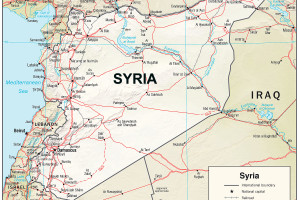RBTH: The 3 key areas of disagreement between Moscow and Damascus

Since the beginning of the Syrian conflict, Russia has been seen as a loyal ally to Bashar Assad, giving unwavering support to the Syrian president. Yet, the positions of Moscow and the Syrian regime are far from identical. Russia advocates a political solution to the crisis, whereas Assad sees war as the answer.
(Russia Beyond the Headlines – rbth.ru – OLEG YEGOROV, RBTH – June 22, 2016)
Russia is rendering extensive support to Bashar Assad’s government. Since the start of the Syrian conflict, Moscow has four times blocked draft UN Security Council resolutions targeting the Syrian regime, helped Syria to destroy its chemical weapons, and more than once supported Assad’s position at international negotiations.
Damascus relies on Russian military assistance. With the support of the Russian Air Force, Syrian government troops – which until September 2015 had been retreating – snatched the initiative in the civil war, regained control over some previously lost districts, including Palmyra, and are now mounting an offensive against Raqqa, the self-styled “capital” of ISIS (the terror group which is banned in Russia). Without Russia’s involvement, these gains would not have been possible. Nevertheless, there are serious disagreements between the Kremlin and the Syrian regime.
1. Different goals
The goals of Russia and Assad in the Syrian conflict only partially coincide, says Vladimir Akhmedov, a senior research associate at the Russian Academy of Sciences’ Institute of Oriental Studies. “Russia’s interests consist in preserving a secular regime in Syria, which would continue cooperating with Moscow,” he says.
As far as Moscow is concerned, it is not essential whether Assad remains in power or not, whereas for him this issue is crucial, Akhmedov says. Representatives of the Syrian government refuse to discuss the president’s resignation as a prerequisite for the start of a “transition period” envisaged in the Geneva agreements.
2. Assad is for war
Akhmedov believes that the Syrian president is only paying lip service to a political settlement. “Assad is a man of war, he intends to fight to the end,” he says. “He is prepared to hold talks only from a position of strength so that he could impose his terms on the opposition. To that end, he needs military victories, he needs to regain control over large chunks of territory.”
This opinion is shared by Arabic scholar, Grigory Kosach, a professor at the Russian University of Humanities. “Unlike Russia, Assad has never viewed even the moderate section of the Syrian opposition as a possible negotiating partner. He has always described them as terrorists operating on orders from abroad,” says Kosach.
For Russia, a continuation of the war is fraught with the risk of bigger losses. “We cannot allow an escalation and the involvement of a large number of Russian servicemen in hostilities. Russia is seeking to move to a political settlement,” says Vladimir Akhmedov.
3. Attitude to the Kurds
The positions of Moscow and Damascus also differ on the Kurdish issue. When in March 2016, Syrian Kurds declared the establishment of an autonomous Federation of Northern Syria, Bashar Assad opposed the move despite the fact that the Kurds did not demand independence but just called for a federation. “Damascus is categorically opposed to any ideas of federalization, fearing that it would result in a breakup of the country,” says Kosach.
In the standoff between the government and the Kurds, Russia has opted to remain neutral. Russian presidential press secretary Dmitry Peskov said: “The internal structure of the Syrian state is a matter for Syrians to decide.”
Kosach points out that Moscow is exercising caution: Syrian Kurds are an effective ally in the fight against ISIS but Russia has no intention of ruining relations with Damascus on their account. Nevertheless, in February 2016, a representative mission of Syrian Kurdistan opened in Moscow (at an unofficial level, as a non-governmental organization).
Disagreements downplayed
Experts are convinced that despite the existing disagreements between Assad and Russia, the Kremlin will not give up its support for the Syrian president. “So far, Russia does not see anyone in Syria who could replace Assad [from the point of view of protecting Russia’s interests]. That is why it has to support all his initiatives,” says Kosach.
According to Akhmedov, if Russia starts putting too much pressure on Assad, he may easily reject cooperation with Russia and move completely under Iran’s influence. Iran, unlike Russia, does not consider the option of regime change in Syria, even theoretically, and unequivocally supports Assad. This explains, he says, Moscow’s reluctance to criticize the Syrian regime and demonstrate a unity of approach even where there are some disagreements.
[Article also appeared at rbth.com/international/2016/06/22/the-3-key-areas-of-disagreement-between-moscow-and-damascus_605157]
